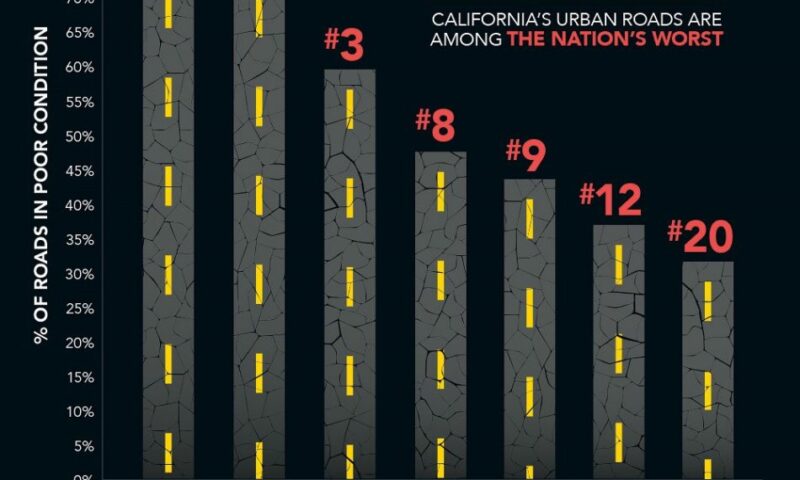LATEST NEWS


He’s been a pope of many firsts already. The first to invite Catholics to forgive women who have had abortions, and the first to refrain from judging gay people to cite just two that have made headlines. But he’s also arguably the first pope to press hard against not just the reality of poverty, but the culpability of the economic system that is in large part driving it. He’s vocal about immigration. It’s as if Pope Francis is the first pope who is actually listening, and that makes him relevant in a way his predecessors simply were not.
He’s also about to be the first pope to ever speak before Congress. We can only hope they’ll listen. Since nearly a third of them are Catholics, I think many of them will. In fact, there are more Catholics in Washington these days than ever. Six of the 9 Supreme Court Justices are Catholics,
» Read more about: The Listener: Pope Francis Sets a Different Course »


“We’re not here because Mr. Kaplan helped us do better on standardized tests,” said one of the nearly one thousand students, former students, teachers, and friends gathered Sunday in the auditorium of Hamilton High School on Robertson to honor the beloved teacher Alan Kaplan who died August 29th.
Mr. Kaplan taught history and psychology in Hamilton’s Humanities Magnet program for 33 years. Through his teaching Kaplan was determined to do something about the achievement gap between white students and students of color. “He was devoted to helping students understand the process, the psychology and the history of racism in our country, believing it would be therapeutic,” said a colleague. Using “The Peoples’ History of the United States” by Howard Zinn as his history text, Kaplan’s lesson plans connected students to what was happening beyond the school walls. “He opened up the world to us” was how a former student,
» Read more about: "Don’t Believe Everything You Think." Remembering Teacher Alan Kaplan »


Twenty-six-year-old Takele Gobena is part of the “on-demand” economy, working full-time as a driver for Uber and part time for Lyft. The Ethiopian immigrant quit his job at the Seattle-Tacoma International Airport and purchased a new car to drive for the ride-hailing firms, believing it would make him a better provider for his one-year-old daughter. Instead, Gobena now finds himself in debt and, after expenses, making well below minimum wage. But because Uber and Lyft drivers are classified as independent contractors, Gobena is not protected by minimum wage laws.
Gobena’s plight is an increasingly familiar one. A new report from the National Employment Law Project, “Rights on Demand: Ensuring Workplace Standards and Worker Security In the On-Demand Economy,” highlights the problems so many on-demand workers face: “Characterizing workers as non-employees has serious negative consequences for them: non-employees have no statutory right to minimum wage, overtime pay,


In the 1947 science fiction novel Greener Than You Think, a scientist invents a powerful fertilizer intended to boost crop production and combat hunger. The salesman she hires, however, sees more business potential in lawn care, and convinces a Los Angeles homeowner to try the formula on a yellowing, “sad and sickly” front yard. When the salesman stops back the next day, the lawn is transformed. “There wasn’t a single bare spot visible in the whole lush, healthy, expanse. And it was green. Green . . . over every inch of its soft, undulating surface: a pale apple green where the blades waved to expose its underparts and a rich, dazzling emerald on top.”[i]
The lawn grows uncontrollably in the novel, and the grass ultimately takes revenge and crushes cities like a green giant. Whether or not author Ward Moore chose the L.A.
» Read more about: Drought Lawns: The Ungreening of Los Angeles »


As major climate legislation that would dramatically increase our investment in renewable energy approaches the Governor’s desk, this is a critical time to be thinking about low-income communities, including South Los Angeles, for whom the benefits of renewable energy investment have been largely out of reach.
The Los Angeles Alliance for a New Economy (LAANE), in partnership with my organization, Strategic Concepts in Organizing and Policy Education (SCOPE), recently conducted an analysis of the L.A. Department of Water and Power’s most established renewable energy program, the Solar Incentives Program (SIP). We found that this residential rooftop solar initiative has left South L.A. behind, along with Wilmington, Boyle Heights, Pacoima and other communities.
This program offers incentives for residents who buy and install their own rooftop solar energy systems from private solar companies. In the past 15 years, LADWP has invested more than $115 million of ratepayer funds to support the development of residential rooftop solar.
» Read more about: Realizing the Promise of Solar for South Los Angeles »


Thanks to the determined efforts of tenant activists and area residents, real estate developer Matthew Jacobs’ plan to demolish eight affordable housing units in the Fairfax District and replace them with “luxury” living accommodations has been put on hold—for now. Jacobs (who recently resigned from his chairman post at the California Housing Finance Agency), his business partner Guy Penini and their company, Bulldog LLC, had already begun demolition of the rent-controlled bungalow structures located at 750-756 N. Edinburgh Avenue (where they used the Ellis Act to evict eight families), when the city abruptly halted their tear-down undertaking.
Tenant activist Steve Luftman, who lives in another Jacobs-owned building that was also slated for the wrecking ball, is involved in the Edinburgh preservation project — just as he was for the building that he lives in. Luftman’s Flores Street apartment complex was designed by noted architect Mendel Meyer,
» Read more about: Historic, Affordable Bungalows Saved from Wrecking Ball »


It was 2008 and presidential hopeful Barack Obama was inspiring millions of people with his promise to disrupt politics as usual – and a new startup called Airbnb was turning that enthusiasm for change into millions of dollars. Denver, the site of that year’s Democratic National Convention, was expecting 80,000 people to come watch the senator from Illinois accept his party’s nomination. The city had space for less than half.
“Obama supporters can host other Obama supporters,” is what CEO Brian Chesky recalls thinking to himself. In a profile of the company, the Huffington Post notes how that idea was turned into cash. “Airbnb, which lets users rent out part or all of their homes, blasted bloggers in Denver with company information.” It “sold ‘Obama O’s’ cereal around town,” garnering news coverage as “an innovative solution to the city’s lodging crisis.”
Founded in 2007, Airbnb is today valued at more than $25 billion and the for-profit sharing economy it helped usher in is no longer so new.
» Read more about: The Sharing Economy's Liberal Lobbyists »
I hope the oil lobbyists in Sacramento broke out some high-priced Champagne this weekend. They deserve it. They just scuttled the biggest and most likely-to-succeed effort in the history of California to save the planet.
Oil industry ad decrying what it called the “California Gas Restriction Act of 2015”
Senate Bills 350 and 32 had already passed in the upper house. As my Capital & Main colleague Bill Raden summarized, SB 32, authored by state Senator Fran Pavley (D-Agoura Hills), would “extend the greenhouse gas (GHG) emission reductions” achieved a few years back through Assembly Bill 32. Senate bill 350, introduced by Senate president Pro tempore Kevin de León (D-Los Angeles) – named after the threshold of carbon particles per million that our planetary life cannot surpass – aimed to set standards for California that would “double the energy efficiency of its older buildings,


Next spring, the U.S. Supreme Court will decide a case that could threaten the economy and American democracy. Friedrichs v. California Teachers Association asks the justices to consider overturning a 1977 Supreme Court unanimous ruling (Abood v. Detroit Board of Education) that protected the right of teachers, nurses, librarians, firefighters and other public workers to form unions. The Abood case emphasized that these workers act as the middle class’ backbone by providing quality public services and ensuring healthy communities.
In Abood, the Court ruled that every public worker who benefits from collective bargaining could be required to pay their fair share for those efforts. It’s a basic democratic principle.
For a preview of what will happen if the Court sides with the plaintiffs in Friedrichs, we should look at Wisconsin. In 2011,
» Read more about: The Supreme Court and "Friedrichs" — Lessons From Wisconsin »


When California Governor Pat Brown helped create the modern University of California system in the early 1960s, he envisioned many things: a world-class structure of higher education, universal access to students from every background, a gateway to middle-class careers, cutting-edge research centers. All of that has come to pass, making UC an enduring part of Brown’s legacy.
One thing Brown did not foresee, however, was UC becoming embroiled in an emblematic fight over economic inequality, with critics charging that one of the nation’s most prestigious public institutions is perpetuating poverty.
The controversy over UC’s use of thousands of contract workers who earn low wages with few, if any, benefits has taken center stage in Sacramento, where legislation that would end such practices cleared the Legislature last week. The fate of Senate Bill 376, sponsored by state Senator Ricardo Lara (D-Bell Gardens), now rests with Pat Brown’s son,
» Read more about: Jerry Brown’s University of California Perma-Temp Problem »


Like a charismatic politician whose flaws have yet to be exposed, the so-called sharing economy enjoyed a meteoric rise to fame and success. Uber, Lyft, Airbnb — these companies emerged seemingly from nowhere to become economic and cultural powerhouses, and to challenge the prevailing structure of their respective industries.
But 2015 has not been as kind to Uber and its brethren, as the fascination with a new business model has given way to serious concerns over everything from public safety to worker exploitation to unfair market monopolization. In some ways this is not surprising — the honeymoon for startups can be notoriously brief.
But something larger is at play here. In the age of rampant income inequality, the overhyped promises of the sharing economy are running headlong into a growing desire by Americans for a caring economy.
There’s a reason why even Republican presidential candidates,
» Read more about: Uber and Airbnb: A 'Sharing' Economy for Whom? »


State lawmakers returned from the Labor Day weekend to face a potential Greek tragedy as the current legislative session enters its final days. Taking center stage is a contentious battle pitting the oil industry, the California Chamber of Commerce and a group of business-friendly Democrats against two history-making global warming measures.
Senate Bill 32, authored by Senator Fran Pavley (D-Agoura Hills), seeks to extend the greenhouse gas (GHG) emission reductions already achieved by Assembly Bill 32, a bill Pavley helped write as an assemblymember, and which became the state’s highly effective 2006 carbon cap-and-trade law.
Senate Bill 350 is the attempt by Senate President Pro Tem Kevin de León (D-Los Angeles) to spell out the “Golden State Standards 50-50-50” that Governor Jerry Brown unveiled in January’s State of the State address. It would require California to double the energy efficiency of its older buildings,
» Read more about: Sacramento Battle Over Historic Climate Change Bills »


Lucy Dunn has a message for Republican lawmakers: Approve new revenue now to fix California’s decaying highway and bridge system or face severe economic consequences that will be felt throughout the state for decades.
Dunn is no big-spending liberal and you won’t find a Proud to Be Union bumper sticker on her car. In fact, she’s president of the influential Orange County Business Council and a card-carrying Republican. But to Dunn, funding long-neglected transportation maintenance and repairs is an existential issue for California’s business community.
“If you can’t move people and goods on safe roads and bridges, you cannot do business in the state,” Dunn tells Capital & Main.
California ranks 45th among the 50 states for overall highway performance.
This fundamental lesson was brought to urgent life in July, when a bridge collapsed along Interstate 10 during heavy rains,
» Read more about: Can a Business-Labor Alliance Save California’s Infrastructure? »


Disabled and elderly Californians have cause to worry as time marches forward to June 30, 2016. That’s the deadline for Governor Jerry Brown and state legislators to find a permanent solution to keep whole one of California’s largest assistance programs for the state’s most vulnerable populations.
For this fiscal year, a seven percent cut– $226 million–was restored to the In-Home Supportive Services (IHSS) program in June. But without solid funding for the future, nearly a million adults, children and their caregivers face losing hours of service and wages again.
The restoration of the cuts was a huge victory for consumers of IHSS’s services, according to Brandi Wolf, California policy director for the United Long Term Care Workers (ULTCW), “but living from year to year [involves] a tremendous amount of uncertainty. We can’t ask consumers to live in this uncertain world.” ULTCW, an affiliate of the Service Employees International Union, represents many IHSS workers.
» Read more about: Vulnerable Home Care Recipients Fear Losing Services—Again »


In 1936, during the throes of the Great Depression, FDR addressed a deeply divided and economically insecure nation on the eve of Labor Day:
“There are those who fail to read both the signs of the times and American history. They would try to refuse the worker any effective power to bargain collectively, to earn a decent livelihood and to acquire security. It is those short-sighted ones, not labor, who threaten this country with that class dissension which in other countries has led to dictatorship and the establishment of fear and hatred as the dominant emotions in human life.”
The parallels to what’s happening today are remarkable.
While the circumstances differ from now, the insecurity so many felt in 1936 is as strong as it was then. It exists across sectors. It exists regardless of geography. It exists because the wealthy few have reaped the rewards of our labor without sharing the prosperity.
» Read more about: This Labor Day Unions Remain a Beacon of Hope for Millions »


According to a Sacramento Bee story published today, California State Senator Holly Mitchell (D-Los Angeles) has dropped her campaign to pass Senate Bill 23, which would have repealed the Maximum Family Grant rule, a 20-year-old law that blocked state welfare services for children born to mothers who receive welfare. The Bee’s Capitol Alert story reported,
Mitchell’s bill is currently awaiting a vote on the Assembly floor, and she said she would instead push to get the policy into next year’s budget.
“How would we pay for it?” Mitchell said. “Because of the huge price tag, I’m going to continue working with the administration during the interim.”
Writing in Capital & Main, Judith Lewis Mernit recently described the Maximum Family Grant rule as “a relic of a 1990s-era conservative belief that women were deliberately having more babies just to rake in more benefits,
» Read more about: Holly Mitchell Drops Bid to Restore Child Welfare Cuts »


As the edge of summer burns into early autumn, students across the country are going back to school. Most are returning to friends and meeting teachers, but students at Illinois’ Barrington High School are arriving this year to signs that read, “Can’t live on $8.50,” and shouts of “Devuelvenos nuestros salarios!” (Give us back our wages!)
A majority of the school’s contracted janitors—organized by the Service Employees International Union—are striking because, after the Barrington school district renewed a contract with its employer in June, their wages were cut from $9.77 an hour. Already without sick days and health insurance, the janitors are now faced with even lower poverty wages.
As our publication, Making the Grade? Questions to Ask About School Services Privatization, discusses, school districts often don’t save money when they outsource support positions rather than keep them in-house. When contractors aim to maximize profit,
» Read more about: Outsourcing: Maximum Profits, Minimum Standards »


Though we tend to associate it with barbecues and retail sales, Labor Day is a holiday honoring the American labor movement. And an easy way to celebrate the movement that brought us the minimum wage, an 8-hour workday and an end to child labor is by buying Sam Adams, Doritos, and other union-made nosh for Monday’s get-togethers.
All the products listed below are made by unionized workers . You can find a more comprehensive list over at the website Labor 411.
Chips & Dip
Tostitos Chips, Salsas, and Dips
Mission Chips, Salsas, and Dips
Doritos
Cheetos
Fritos
Rold Gold Pretzels
Meat & Buns
Ball Park franks
Hebrew National franks
Oscar Meyer & Boar’s Head hot dogs
Sara Lee buns
Oroweat buns
Condiments
Heinz Ketchup
French’s Mustard
Vlasic (Relish,
» Read more about: A Labor-Friendly Shopping List for Labor Day »


For some people, renting a house or apartment in San Francisco is easy. If your gross pay adds up to $200,000 a year, for example, you might feel fine about sinking a third of this year’s salary into a bright, one-bedroom South Beach loft, or a two-bedroom loft with a view in the Castro District . On less money – say, around $100,000 in take-home pay – you could reasonably afford a Union Square studio, or a 550-square-foot studio for $2,800 in Pacific Heights. Even if you invest no more than a third of your income in rent (the traditionally recommended ceiling), you could live in a one-bedroom apartment in Ingleside, near the San Francisco State University campus. You would have options.
But say you actually work on campus — as a teacher, librarian or groundskeeper. Say you want to go to school there, and not have to commute more than a dozen miles in the morning.
» Read more about: San Francisco Professors and Students Face Staggering Rents »


A nationwide group of self-described small and independent business owners has joined the legal battle to appeal California’s landmark lead paint court ruling. But questions have arisen about the actions of the National Federation of Independent Business (NFIB), which, through its Small Business Legal Center, is part of an amici curiae (“friends of the court”) brief filed on behalf of the defendants in California’s 6th Appellate District Court of Appeal in San Jose.
Why is NFIB, which reports that most of its member businesses employ only three to five workers, going to bat for the case’s three multinational corporate defendants?
About 1.5 million homes in L.A. County built before 1978 probably contain lead-based paint.
In December 2013, Santa Clara County Superior Court Judge James Kleinberg ordered ConAgra, Sherwin-Williams and National Lead (NL Industries) to pay $1.15 billion to three California cities and seven counties,
» Read more about: ‘Mom and Pop’ Business Group Fights Lead Paint Ruling »